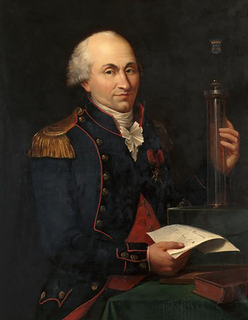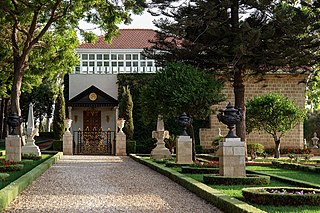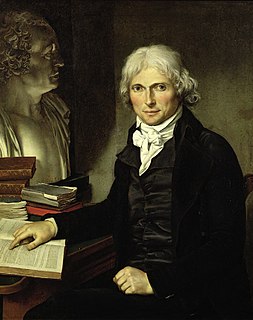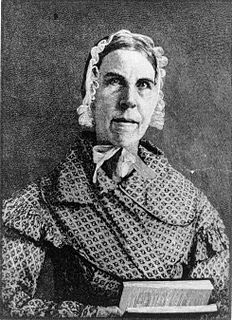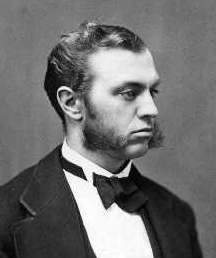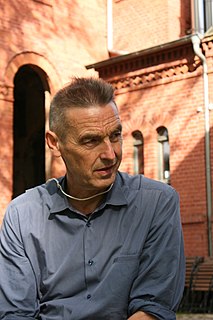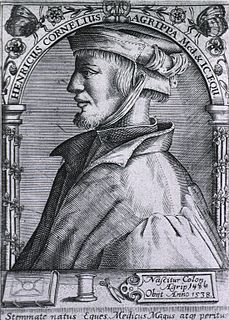Top 890 Sciences Quotes & Sayings - Page 13
Explore popular Sciences quotes.
Last updated on December 4, 2024.
What we're starting to see is a quantum biology, it being applied in biology and cosmology and a host of other sciences, because it does really pertain to how we know. It really helps bring epistemology, which is how do we know what we know, out of the realm of philosophy and brings it into the realm of science.
Moreover, the sciences are monuments devoted to the public good; each citizen owes to them a tribute proportional to his talents. While the great men, carried to the summit of the edifice, draw and put up the higher floors, the ordinary artists scattered in the lower floors, or hidden in the obscurity of the foundations, must only seek to improve what cleverer hands have created.
It'd be a shame to talk about the universe and not show some images of it, because we have some of the more stunning representations of our field relative to any of the sciences. But I don't use the imagery as a substitute for the insights and wisdom I can convey so that when you leave you say to yourself, "Wow, I'm a little more deeply connected to the universe, and I want to learn more."
I note that warmists are often banging on about the fact that sceptics like Christopher Booker and myself 'only' have arts degrees. But actually that's our strength, not our weakness. Our intellectual training qualifies us better than any scientist - social or natural sciences - for us to understand that this is, au fond, not a scientific debate but a cultural and rhetorical one.
Professor Eddington has recently remarked that 'The law that entropy always increases - the second law of thermodynamics - holds, I think, the supreme position among the laws of nature'. It is not a little instructive that so similar a law [the fundamental theorem of natural selection] should hold the supreme position among the biological sciences.
Wisdom and knowledge, as well as virtue, diffused generally among the body of the people being necessary for the preservation of their rights and liberties; and as these depend on spreading the opportunities and advantages of education in various parts of the country, and among the different orders of the people, it shall be the duty of legislators and magistrates in all future periods of this commonwealth to cherish the interests of literature and the sciences.
If photography is allowed to stand in for art in some of its functions it will soon supplant or corrupt it completely thanks to the natural support it will find in the stupidity of the multitude. It must return to its real task, which is to be the servant of the sciences and the arts, but the very humble servant, like printing and shorthand which have neither created nor supplanted literature.
Literary or scientific, liberal or specialist, all our education is predominantly verbal and therefore fails to accomplish what it is supposed to do. Instead of transforming children into fully developed adults, it turns out students of the natural sciences who are completely unaware of Nature as the primary fact of experience, it inflicts upon the world students of the humanities who know nothing of humanity, their own or anyone else's.
The very hope of experimental philosophy, its expectation of constructing the sciences into a true philosophy of nature, is basedon induction, or, if you please, the a priori presumption, that physical causation is universal; that the constitution of nature is written in its actual manifestations, and needs only to be deciphered by experimental and inductive research; that it is not a latent invisible writing, to be brought out by the magic of mental anticipation or metaphysical mediation.
This is why it might be more useful to understand the proliferation of interactive media as an opportunity for renaissance: a moment when we have the ability to step out of the story altogether. Renaissances are historical instances of widespread recontextualisation. People in a variety of different arts, philosophies and sciences have the ability to reframe their reality. Renaissance literally means 'rebirth'. It is the rebirth of old ideas in a new context.
But concerning vision alone is a separate science formed among philosophers, namely, optics, and not concerning any other sense ... It is possible that some other science may be more useful, but no other science has so much sweetness and beauty of utility. Therefore it is the flower of the whole of philosophy and through it, and not without it, can the other sciences be known.
Some years ago I was struck by the large number of falsehoods that I had accepted as true in my childhood, and by the highly doubtful nature of the whole edifice that I had subsequently based on them. I realized that it was necessary, once in the course of my life, to demolish everything completely and start again right from the foundations if I wanted to establish anything at all in the sciences that was stable and likely to last.
The branches of mathematics are as various as the sciences to which they belong, and each subject of physical enquiry has its appropriate mathematics. In every form of material manifestation, there is a corresponding form of human thought, so that the human mind is as wide in its range of thought as the physical universe in which it thinks.
For myself, I am interested in science and in philosophy only because I want to learn something about the riddle of the world in which we live, and the riddle of man's knowledge of that world. And I believe that only a revival of interest in these riddles can save the sciences and philosophy from an obscurantist faith in the expert's special skill and in his personal knowledge and authority.
If the study of all these sciences which we have enumerated, should ever bring us to their mutual association and relationship, and teach us the nature of the ties which bind them together, I believe that the diligent treatment of them will forward the objects which we have in view, and that the labor, which otherwise would be fruitless, will be well bestowed.
The civilization, so often vaunted by the learned exponents of arts and sciences, will, if allowed to overleap the bounds of moderation, bring great evil upon men. Thus warneth you He Who is the All-Knowing. If carried to excess, civilization will prove as prolific a source of evil as it had been of goodness when kept within the restraints of moderation.
Thus metaphysics and mathematics are, among all the sciences that belong to reason, those in which imagination has the greatest role. I beg pardon of those delicate spirits who are detractors of mathematics for saying this . . . . The imagination in a mathematician who creates makes no less difference than in a poet who invents. . . . Of all the great men of antiquity, Archimedes may be the one who most deserves to be placed beside Homer.
The animate earth - this moody terrain that we experience differently in anger and in joy, in grief and in love - is both the soil in which all our sciences are rooted and the rich humus into which their results ultimately return, whether as nutrients or as poisons. Our spontaneous experience of the world, charged with subjective, emotional, and intuitive content, remains the vital and dark ground of all our objectivity
We suppose that could be considered a hedged position for the awards committee, one that would never occur in the hard sciences such as physics and chemistry, where a prize shared among three with divergent views would be an embarrassing mistake or a bad joke. While a Nobel Prize might well be the culmination of a life’s work, shouldn’t the work accurately describe the real world?
Medicine is an incoherent assemblage of incoherent ideas, and is, perhaps, of all the physiological Sciences, that which best shows the caprice of the human mind. What did I say! It is not a Science for a methodical mind. It is a shapeless assemblage of inaccurate ideas, of observations often puerile, of deceptive remedies, and of formulae as fantastically conceived as they are tediously arranged.
If the sewing societies, the avails of whose industry are now expended in supporting and educating young men for the ministry, were to withdraw their contributions to these objects, and give them where they are more needed, to their advancement of their own sex in useful learning, the next generation might furnish sufficient proof, that in intelligence and ability to master the whole circle of sciences, woman is not inferior to man.
It cannot be that axioms established by argumentation should avail for the discovery of new works, since the subtlety of nature is greater many times over than the subtlety of argument. But axioms duly and orderly formed from particulars easily discover the way to new particulars, and thus render sciences active.
...a vocal minority of scientists so mistrusts the models and the complex fragmentary data, that some claim that global warming is a hoax. They have made public statements accusing other scientists of deliberate fraud in aid of their research funding. Both sides are now hurling personal epithets at each other, a very bad development in Earth sciences.
Eugene Wigner wrote a famous essay on the unreasonable effectiveness of mathematics in natural sciences. He meant physics, of course. There is only one thing which is more unreasonable than the unreasonable effectiveness of mathematics in physics, and this is the unreasonable ineffectiveness of mathematics in biology.
Long before being nerdy was cool, there was Leonard Nimoy. Leonard was a lifelong lover of the arts and humanities, a supporter of the sciences, generous with his talent and his time. And of course, Leonard was Spock. Cool, logical, big-eared and level-headed, the center of Star Trek’s optimistic, inclusive vision of humanity’s future. I loved Spock.
Nuclear industry proponents often assert that low doses of radiation (eg below 100mSV) produce no ill effects and are therefore safe. But , as the US National Academy of Sciences BEIR VII report has concluded, no dose of radiation is safe, however small, including background radiation; exposure is cumulative and adds to an individual's risk of developing cancer.
I took biology in high school and didn't like it at all. It was focused on memorization. ... I didn't appreciate that biology also had principles and logic ... [rather than dealing with a] messy thing called life. It just wasn't organized, and I wanted to stick with the nice pristine sciences of chemistry and physics, where everything made sense. I wish I had learned sooner that biology could be fun as well.
The sciences do not try to explain, they hardly even try to interpret, they mainly make models. By a model is meant a mathematical construct which, with the addition of certain verbal interpretations, describes observed phenomena. The justification of such a mathematical construct is solely and precisely that it is expected to work-that is, correctly to describe phenomena from a reasonably wide area.
In an information economy, entrepreneurs master the science of information in order to overcome the laws of the purely physical sciences. They can succeed because of the surprising power of the laws of information, which are conducive to human creativity. The central concept of information theory is a measure of freedom of choice. The principle of matter, on the other hand, is not liberty but limitation- it has weight and occupies space.
Astronomers have a common ground for discussion with musicians in the harmony of the stars and musical concords in tetrads and triads of the fourth and the fifth, and with geometricians in the subject of vision; and in all other sciences many points, perhaps all, are common so far as the discussion of them is concerned. But the actual undertaking of works which are brought to perfection by the hand and its manipulation is the function of those who have been specially trained to deal with a single art.
I do think that an understanding of contemporary work in the cognitive sciences has a profound effect on how one views the workings of the mind. It doesn't work the way we pretheoretically think it does. Such an understanding, of course, should have a large effect on one's views in philosophy of mind, but also in epistemology.
When the world is mad, a mathematician may find in mathematics an incomparable anodyne. For mathematics is, of all the arts and sciences, the most austere and the most remote, and a mathematician should be of all men the one who can most easily take refuge where, as Bertrand Russell says, "one at least of our nobler impulses can best escape from the dreary exile of the actual world."
But like all power, there are those who want to keep it for themselves. The world's entire scientific and cultural heritage, published over centuries in books and journals, is increasingly being digitized and locked up by a handful of private corporations. Want to read the papers featuring the most famous results of the sciences? You'll need to send enormous amounts to publishers like Reed Elsevier.
Liebig taught the world two great lessons. The first was that in order to teach chemistry it was necessary that students should be taken into a laboratory. The second lesson was that he who is to apply scientific thought and method to industrial problems must have a thorough knowledge of the sciences. The world learned the first lesson more readily than it learned the second.
For I assure you, without travel, at least for people from the arts and sciences, one is a miserable creature!... A man of mediocre talents always remains mediocre, may he travel or not - but a man of superior talents, which I cannot deny myself to have without being blasphemous, becomes - bad, if he always stays in the same place.
Sloppy language and sloppy ways go together. Those who are truly educated have learned more than the sciences, the humanities, law, engineering, and the arts. They carry with them a certain polish that marks them as loving the better qualities of life, a culture that adds luster to the mundane world of which they are apart, a patina that puts a quiet glow on what otherwise might be base metal.
About 70% of what I've written about is centered on the clashes and conformities between the emerging life and physical sciences and older metaphysical frameworks in the 17th and 18th centuries. The other 30% consists of one-off essays or researches into other intriguing contemporary topics such as visual experience, aesthetics, social justice issues, and the epistemology of moral knowledge.
The state has been living on a revenue which was being produced in the private sphere for private purposes and had to be deflected from these purposes by political force. The theory that construes taxes on the analogy of club dues or of the purchase of the services of, say, a doctor only proves how far removed this part of the social sciences is from scientific habits of mind.
The analytical geometry of Descartes and the calculus of Newton and Leibniz have expanded into the marvelous mathematical method-more daring than anything that the history of philosophy records-of Lobachevsky and Riemann, Gauss and Sylvester. Indeed, mathematics, the indispensable tool of the sciences, defying the senses to follow its splendid flights, is demonstrating today, as it never has been demonstrated before, the supremacy of the pure reason.
The sciences that purport to treat of human things -- the new scientific storyings of the social, the political, the racial or ethnic, and the psychic, nature of human beings -- treat not of human things but mere things, things that make up the physical, or circumstantial, content of human life but are not of the stuff of humanity, have not the human essence in them.
...mathematics is distinguished from all other sciences except only ethics, in standing in no need of ethics. Every other science, even logic, especially in its early stages, is in danger of evaporating into airy nothingness, degenerating, as the Germans say, into an arachnoid film, spun from the stuff that dreams are made of. There is no such danger for pure mathematics; for that is precisely what mathematics ought to be.
It has been the error of the schools to teach astronomy, and all the other sciences, and subjects of natural philosophy, as accomplishments only; whereas they should be taught theologically, or with reference to the Being who is the author of them: for all the principles of science are of divine origin. Man cannot make, or invent, or contrive principles: he can only discover them; and he ought to look through the discovery to the Author.
Amidst all the attention given to the sciences as to how they can lead to the cure of all diseases and daily problems of mankind, I believe that the biggest breakthrough will be the realization that the arts, which are considered "useless," will be recognized as the whole reason why we ever try to live longer or live more prosperously. The arts are the science of enjoying life.
The old alchemy, or what was just called alchemy, has a history. Most people, if they've been trained in sciences, think of alchemy as the precursor to chemistry. Back in time, people were called alchemists and they worked for kings and rich people, smelting metal and trying to change base metal into gold, because the king wanted to be richer.
If a [democratic] society displays less brilliance than an aristocracy, there will also be less wretchedness; pleasures will be less outrageous and wellbeing will be shared by all; the sciences will be on a smaller scale but ignorance will be less common; opinions will be less vigorous and habits gentler; you will notice more vices and fewer crimes.
I set out to show that there exists single creative activity,which is displayed alike in the arts and in the sciences.It is wrong to think of science as a mechanical record of facts, and it is wrong to think of the arts as remote and private fancies. What makes each human, what makes them universal, is the stamp of the creative mind.
I think it is now time for social scientists to step out of the shadow and to establish an advanced social sciences methodology that integrates science (third-person view) social transformation (second-person view) and the evolution of self (first-person view) into a coherent framework of consciousness-based action research
John Marks Templeton has achieved exemplary success in both business and philanthropy. For Looking Forward he has assembled a diverse and remarkable group of experts in their fields-including the environment, medicine, the physical sciences, religion, the family, and international relations-and contributed two stellar pieces as well. Together these essays dispel fashionable pessimism and show how the world can progress-and is progressing-toward a better future.
By profession a biologist, [Thomas Henry Huxley] covered in fact the whole field of the exact sciences, and then bulged through its four fences. Absolutely nothing was uninteresting to him. His curiosity ranged from music to theology and from philosophy to history. He didn't simply know something about everything; he knew a great deal about everything.
Natural Magick is taken to be nothing else, but the chief power of all the natural Sciences; which therefore they call the top and perfection of Natural Philosophy, and which is indeed the active part of the same; which by the assistance of natural forces and faculties, through their mutual & opportune application, performs those things that are above Human Reason.
What would be the nicest thing I could say about Newt Gingrich? He may be one of the great supporters of the humanities, because you have people who don't want to study the social sciences, because it's not profitable, and now Newt, as the highest-paid historian in American history, may be an encouragement to people to study history.
Among the greatest of all great services is the education of children, and promotion of the various sciences, crafts and arts. Praised be God, ye are now exerting strenuous efforts toward this end. The more ye persevere in this most important task, the more will ye witness the confirmations of God, to such a degree that ye yourselves will be astonished.

